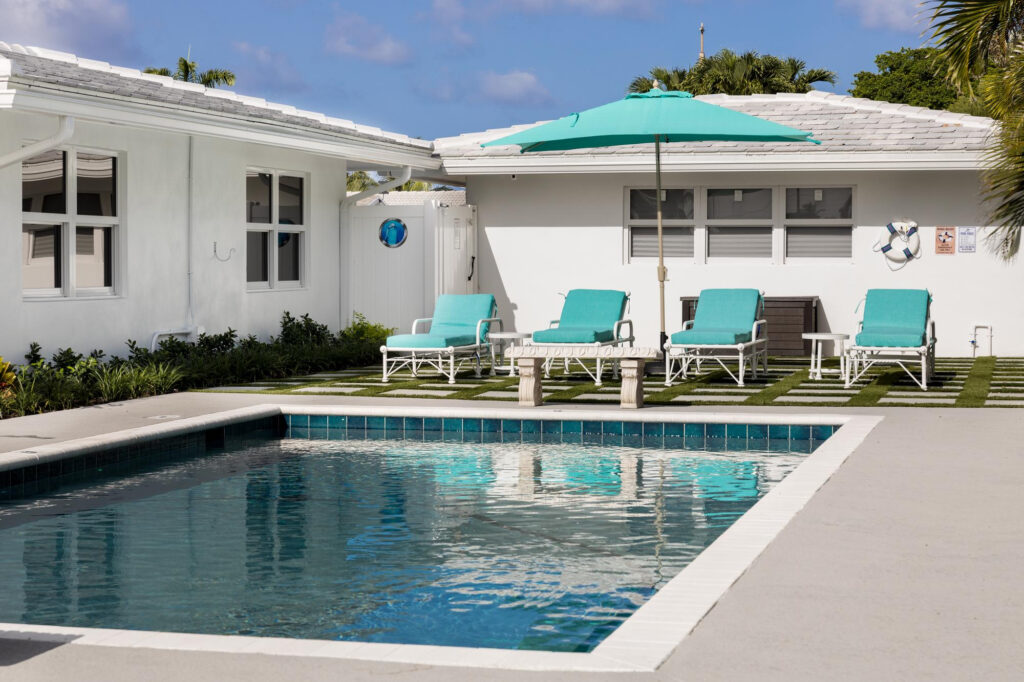Discover effective strategies for training weekend crews in North Miami, ensuring optimal performance and customer satisfaction in the pool maintenance industry.
How to Train Weekend Crews in North Miami, Florida
Training weekend crews effectively in North Miami is not just about imparting skills; it’s about building a cohesive team capable of providing exceptional service. This blog post will delve into the importance of proper training, outline proven strategies for onboarding weekend staff, and highlight the unique challenges presented by the Florida pool maintenance industry. Whether you are a business owner looking to optimize your operations or a manager tasked with training, this article will equip you with the essential knowledge to train your weekend teams effectively.
As the pool maintenance industry continues to grow in North Miami, ensuring that weekend crews are well-trained is crucial for maintaining service quality and customer satisfaction. With the influx of new clients and the expansion of pool routes, businesses must prioritize training programs that address the specific needs of weekend staff. This post will explore various aspects of training, from initial onboarding to ongoing support, and share valuable insights into creating a productive workforce.
Moreover, weekend crews often face unique challenges, such as increased workloads during peak seasons and the need for a flexible approach to customer service. By implementing structured training methods, businesses can empower their teams to navigate these challenges effectively, resulting in improved efficiency and enhanced service delivery.
Understanding the Unique Needs of Weekend Crews
Weekend crews play a critical role in the pool service industry, especially in North Miami, where homeowners often require maintenance over the weekend to accommodate their schedules. Understanding the unique dynamics of this workforce is the first step in creating effective training programs. Weekend staff may face irregular hours and varied responsibilities compared to full-time employees, making it essential to tailor training to their specific circumstances.
In North Miami, the demand for pool maintenance services spikes during the warmer months, leading to an increased need for weekend crews. Statistics show that service requests can rise by over 40% during peak seasons, highlighting the importance of having a well-prepared team ready to meet customer needs. This demand makes it imperative to train weekend staff not only in technical skills but also in customer interaction and time management.
Moreover, the cultural diversity in North Miami means that training must also incorporate effective communication strategies. Many employees may come from different backgrounds and speak various languages, necessitating training that fosters inclusivity and encourages teamwork. By recognizing these unique needs, businesses can create a supportive training environment that equips weekend crews for success.
Essential Training Components for Weekend Crews
Effective training for weekend crews should encompass several key components to ensure comprehensive skill development. First, technical training is crucial, as employees must be adept at performing routine maintenance tasks, troubleshooting common issues, and utilizing various tools safely. Incorporating hands-on training sessions can enhance understanding and retention of these skills.
Second, customer service training cannot be overlooked. Weekend crews often interact with clients who may have specific expectations for service quality. Training should include role-playing scenarios that allow employees to practice addressing customer inquiries, resolving issues, and providing a positive service experience. This aspect not only builds confidence but also enhances interpersonal skills, essential for maintaining client satisfaction.
Additionally, time management and efficiency training should be part of the curriculum. Weekend crews typically work under tight schedules, making it essential for them to learn how to prioritize tasks effectively. Training programs should incorporate practical exercises that simulate real-world scenarios, allowing staff to practice time management skills under pressure.
Implementing a Structured Onboarding Process
To ensure the success of weekend crews, a structured onboarding process is essential. This process should start before the crew’s first day, with pre-training materials provided to familiarize them with company expectations, safety protocols, and job responsibilities. Effective onboarding sets the foundation for a positive training experience and helps new employees feel welcome and valued.
During the first week, new hires should undergo a comprehensive orientation that includes both classroom-style learning and field training. Pairing new employees with experienced crew members can facilitate on-the-job learning, as they can observe best practices in real-time while having the opportunity to ask questions. This mentorship approach not only aids skill development but also fosters camaraderie among staff.
Moreover, utilizing technology can enhance the onboarding experience. Online training modules accessible via mobile devices can provide new hires with a convenient way to absorb essential information at their own pace. This flexibility is particularly beneficial for weekend crews who may have other commitments during the week. By implementing a structured onboarding process, businesses can ensure that weekend crews are prepared to hit the ground running.
Ongoing Training and Development Opportunities
Training shouldn’t stop after the initial onboarding process. Providing ongoing development opportunities is crucial for retaining talent and maintaining high service standards. Regular training sessions can be scheduled to refresh employees on technical skills, introduce new technologies, or cover customer service best practices. These sessions can also serve as a platform for discussing challenges faced in the field and brainstorming solutions as a team.
Additionally, offering incentives for continued education, such as certifications or workshops, can motivate weekend crews to invest in their professional growth. For example, training in specialized pool maintenance techniques or advanced customer service skills can empower employees to take on more responsibilities and improve their job satisfaction. This investment in human capital not only benefits the employees but also enhances the overall quality of service provided to customers.
Furthermore, fostering a culture of continuous learning encourages team members to share knowledge and insights gained from their experiences in the field. Regular team meetings can provide a forum for discussing best practices, sharing success stories, and addressing common challenges. By promoting a collaborative environment, businesses can create a supportive network that empowers weekend crews to thrive.
Utilizing Technology for Training Efficiency
In today’s digital age, leveraging technology can greatly enhance training efficiency. Online resources, such as training videos, instructional manuals, and interactive modules, can provide weekend crews with flexible learning options. These resources can be accessed anytime, allowing employees to revisit crucial information as needed.
Moreover, utilizing mobile applications specifically designed for the pool maintenance industry can streamline communication and task management. Crews can receive real-time updates on service requests, customer preferences, and schedules, ensuring they are always informed and prepared. This integration of technology not only improves operational efficiency but also enhances the customer experience by ensuring timely and accurate service delivery.
Using virtual reality (VR) training tools is another innovative approach that can simulate real-world scenarios without the associated risks. VR can help weekend crews practice responding to various customer situations or troubleshooting common equipment issues in a controlled environment. By incorporating technology into training programs, businesses can ensure weekend crews are equipped with the skills necessary to excel in their roles.
Best Practices for Training Weekend Crews
To maximize the effectiveness of training programs for weekend crews, consider implementing the following best practices. First, keep training sessions concise and focused. Employees are often balancing multiple commitments, so shorter, more targeted sessions can enhance participation and retention of information.
Second, encourage feedback from weekend crews regarding the training process. Understanding their experiences and suggestions will help refine training methods and address any gaps in knowledge or skills. This feedback loop fosters a sense of ownership and accountability among staff, reinforcing the importance of their contributions to the business.
Finally, celebrate successes and acknowledge individual and team achievements. Recognizing hard work and dedication can boost morale and motivate employees to strive for excellence. Consider establishing a rewards program that highlights exemplary performance, reinforcing a positive work environment and enhancing team cohesion.
The Role of Leadership in Training
Effective leadership is essential in guiding weekend crews through their training journey. Leaders should embody the values of the organization and demonstrate a commitment to employee development. By actively participating in training sessions and providing support, leaders can inspire confidence in their teams.
Moreover, open communication is key to fostering a collaborative atmosphere. Leaders should encourage crew members to voice their concerns, share ideas, and seek clarification on training material. Building strong relationships with weekend crews can lead to increased trust and engagement, ultimately resulting in a more dedicated workforce.
Additionally, leaders should model the behaviors they expect from their teams. By exemplifying a strong work ethic, commitment to quality service, and a positive attitude, leaders can motivate weekend crews to follow suit. This alignment of values and expectations will create a unified and high-performing team.
Evaluating Training Effectiveness
To ensure that training programs are achieving their intended goals, businesses should regularly evaluate their effectiveness. Setting measurable objectives, such as improved customer satisfaction scores or reduced service time, can provide valuable insights into the impact of training on performance.
Gathering feedback from customers about their experiences with weekend crews can also serve as a key indicator of training success. By monitoring customer satisfaction and retention rates, businesses can assess whether their training initiatives are translating into tangible results.
Furthermore, conducting periodic assessments of crew members’ skills and knowledge can help identify areas for improvement. These evaluations can inform future training sessions and ensure that weekend crews remain equipped to meet evolving customer needs and industry standards.
Conclusion
Training weekend crews in North Miami is a vital component of sustaining high service standards in the pool maintenance industry. By understanding the unique needs of weekend staff and implementing comprehensive training programs, businesses can enhance performance and customer satisfaction. From effective onboarding processes to ongoing development opportunities, prioritizing the training of weekend crews will lead to a more efficient and dedicated workforce.
As the pool maintenance industry continues to grow, investing in employee training will not only enhance service quality but also foster a culture of excellence within the organization. If you’re considering expanding your pool service business or looking to improve your training processes, explore our offerings at [Pool Routes for Sale](https://pool-routes-for-sale.com/) to discover opportunities that align with your goals. Contact us today to begin your journey towards a more successful pool service business.



